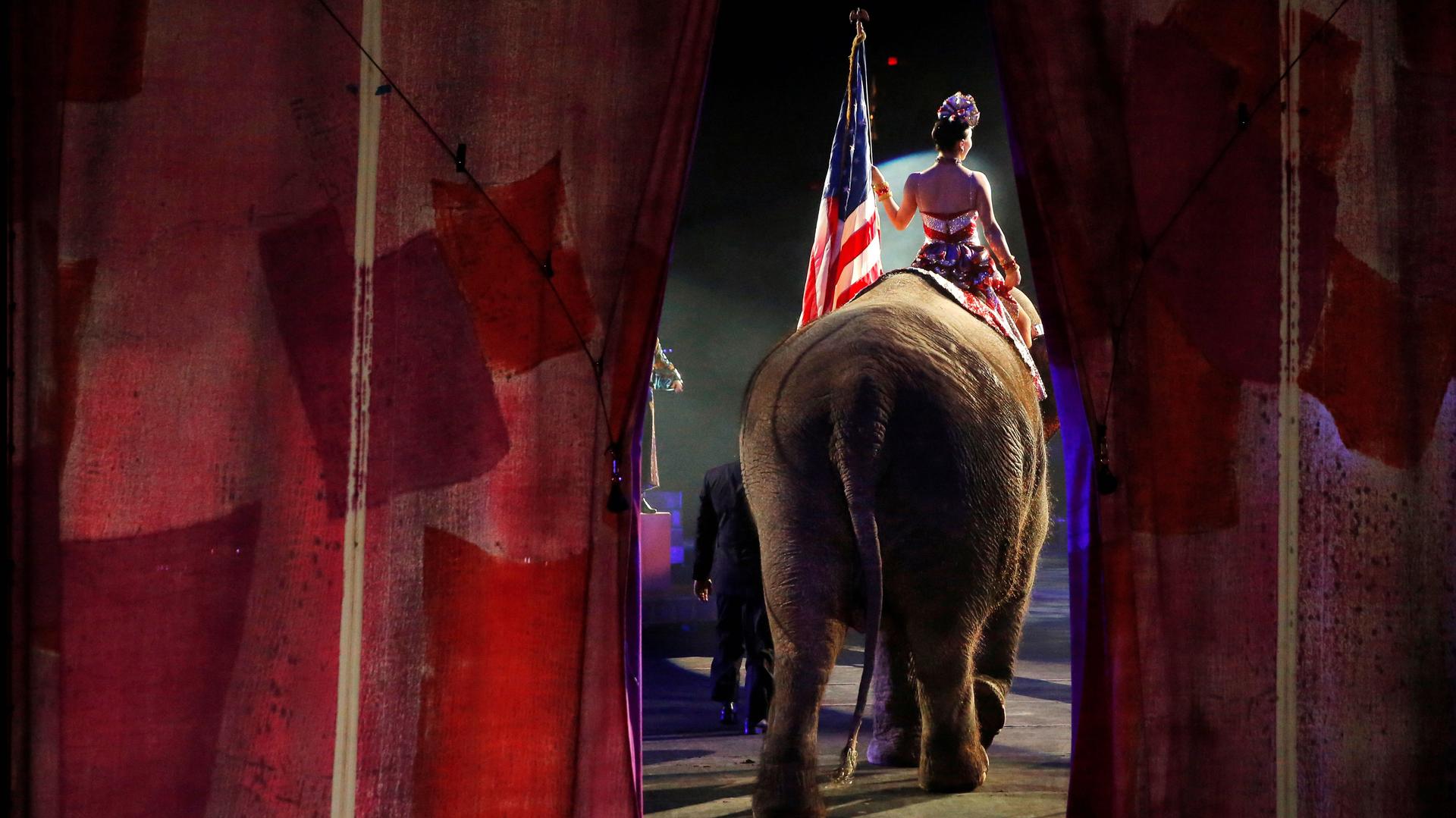After 146 years, ‘the greatest show on Earth’ comes to an end
One of Ringling Bros and Barnum & Bailey Circus' performing elephants enters the arena for it's final show in Wilkes-Barre, Pennsylvania, on May 1, 2016.
Ringling Bros. and Barnum & Bailey, America's best-known circus, has staged its final show after 146 years, marking the end of an era brought on by animal rights advocates.
The final performance of "the greatest show on Earth" took place on Sunday at the Nassau Veterans Memorial Coliseum on Long Island, New York State.
"It's sad," said Angel, son of the general manager, after taking a selfie in front of the circus's famous logo on the side of a truck. "It's all my life."
Members of the audience also took the end of the last show hard. Some still lingered at the venue nearly an hour after the performance ended.
There's a place for circuses in the United States, said Puja Hathi, who brought her 5-year-old daughter.
Children "need to see what real entertainment was back in the day instead of electronic media entertainment," she said.
News of the closure came only in mid-January, when the circus's parent company, Feld Entertainment, made the surprise announcement that it would shut down in four months.
The decision to end the elephant show in May 2016 after public outrage about the animals' treatment caused a steep drop in attendance that made the circus no longer profitable, the company said.
Not everyone buys that explanation, however, pointing to audiences that are often packed.
"It wasn't handled properly," said Greg Packer, whose memories of Ringling Bros, like most spectators', go back to his childhood.
'Ripping a community apart'
Now in his 40s, he said the circus should have been sold, not closed.
"People are being pushed out, losing their jobs," he said. "You're ripping a community apart."
Although Ringling Bros isn't the only circus in America, "this one's the best," said spectator Crystal Porvaznik, 30, who has seen the show almost every year since her childhood.
"We don't like the small ones," she said. "We don't care for those. Which is why it's sad that this is over."
With its enormous stage measuring more than 60 feet by 100 feet, its 300 employees and its own train, the circus that inspired the Disney film "Dumbo" and Cecil B. DeMille's "The Greatest Show on Earth" has been a giant in the public imagination.
"Some have been there for many years," assistant general manager Peter Gold said about the technical staff. "Some stay two hours. They can't take it. They realize it's a lot of pressure."
At more than two hours long, the performance was perfectly honed, put on sometimes up to three times a day, with clowns, acrobats, trapeze artists, motorcyclists and animal riders and tamers.
Although the elephants had gone, lions, tigers, horses, dogs, llamas and even pigs and a kangaroo still took part in most of the performances.
At a time when many circuses had abandoned animals in favor of athletic and artistic performances — such as the Canadian group Cirque du Soleil — Ringling Bros. clung to its animal menagerie.
'Look for a job'
The prominent pressure group People for the Ethical Treatment of Animals, or PETA, protested the inclusion for more than 15 years.
On Sunday, big cat trainer Alexander Lacey, whose family owns some of the animals, defended the animals' living conditions.
That didn't convince spectator Giselle Leonardo, however.
"I loved it when I was a kid, but today I cried through the all-tiger show," she said. "I think they should be free."
Driving the nail home, PETA supporters demonstrated near the performance on Sunday. The group welcomed the circus's closure by tweeting "Victory!"
Porvaznik called that "disrespectful."
"It's their last show," she said. "Just let it go."
Despite the protest campaigns, circus animals continued to fascinate spectators young and old.
"We like the animals best," Porvaznik's mother Nancy said. "We don't like the clowns."
"We would feel bad for the animals if they were not treated the right way," Crystal said. "But we believe they are."
As night fell after the show, Gold considered his future. The former trapeze artist plans to teach during the summer. After that, "I'll have to look for a job."
